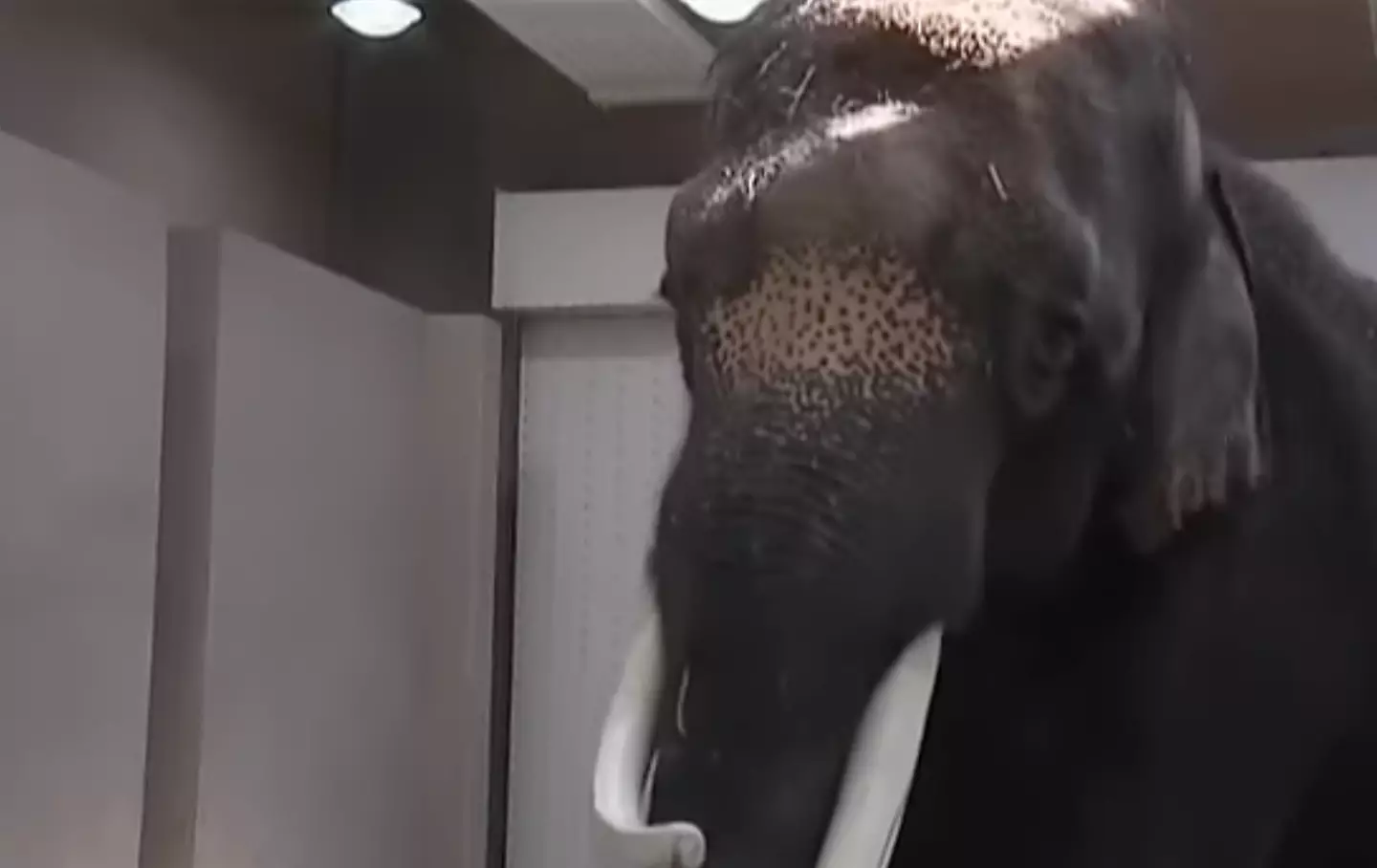
This remarkable elephant, named Koshik, lives at Everland Zoo in Yongin, a city located approximately 90 minutes from Seoul, the capital of South Korea.
Koshik, now 35 years old, has amazed scientists by becoming the first elephant known to replicate human speech.
He joins a surprising group of animals that have attempted to mimic human language, much like the orcas seen in previous videos attempting the same feat with startling results.
Koshik achieves this by placing his trunk in his mouth and utilizing the vibrations to closely imitate human sounds. Notably, his language skills extend beyond ‘hello.’
Koshik’s Korean vocabulary includes at least five words: ‘no,’ ‘sit down,’ ‘good,’ ‘lie down,’ and ‘hello.’
After witnessing Koshik’s linguistic talents on YouTube, Dr. Angela Stoeger from the University of Vienna in Austria contacted the zoo to propose conducting research on him.
Upon receiving permission, she and her team began their study.
“We asked native Korean speakers, who had never experienced the elephant before, to write down what they understood when we played back recordings from Koshik,” Dr. Stoeger explained to the BBC.
“We found a high agreement of the overall meaning.”
She elaborated further: “Human speech has two important aspects, one is pitch (how high or low a sound is) and one is timbre (the musical quality of a voice), and Koshik is matching both of these aspects.”
“He always puts his trunk tip into his mouth and then modulates the oral chamber.”

“We don’t have X-rays, so we don’t really know what is going on inside his mouth, but he’s invented a new way of sound production to match his vocalisations with his human companions.”
Clearly, Koshik is excelling in this unique skill, and Dr. Stoeger continued to praise his achievements.
She remarked, “If you consider the huge size of the elephant and the long vocal tract and other anatomic difference – for example, he has a trunk instead of lips… and a huge larynx – and he is really matching the voice pitch of his trainers, this is really remarkable.”
